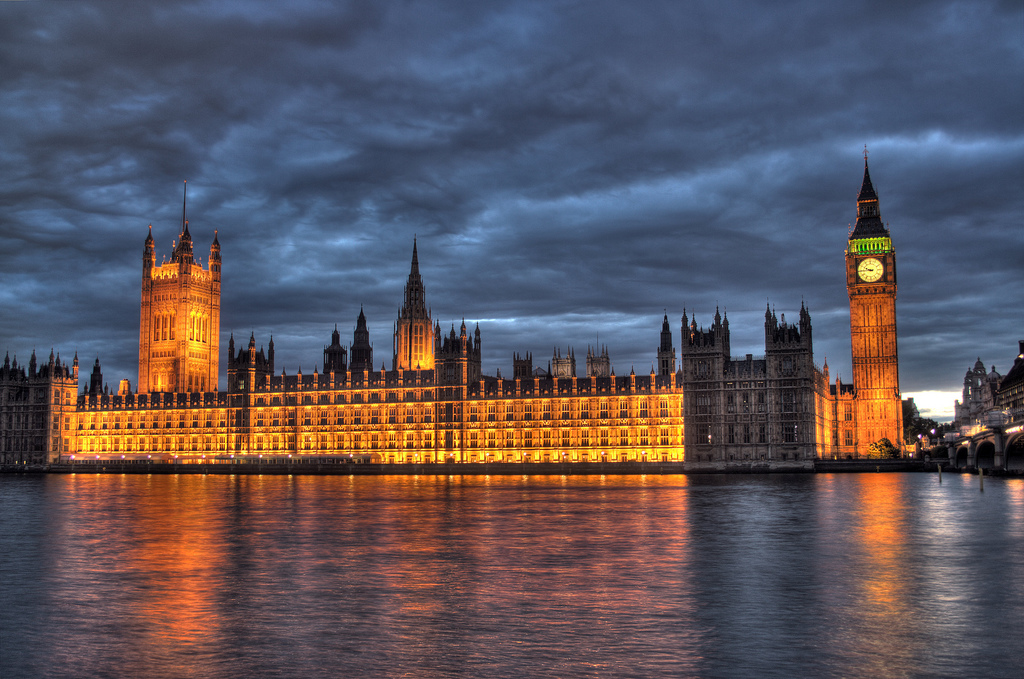Politicians need the cross-party, long-term vision that made the Climate Act a reality six years ago if Britain is to stay the course on climate change, Lord David Puttnam has claimed.
The independent film producer was a founding architect of the 2008 Climate Change Act and he now fears the political consensus on action to prevent devastating global warming is in danger.
Writing in the Guardian with Tim Yeo, vice-chair of the joint committee that helped steer the Act through Parliament, Puttnam argued: “The British political landscape at the end of 2014 is fraught with uncertainty, distrust and fragmentation.”
Politicians ‘out of touch’
“Parties are struggling to bolster support as political debates become ever more divisive. Voters see politicians as out of touch and motivated by short-term, self-serving concerns,” Puttnam and Yeo write.
“In this fractious landscape, sensible long-term policymaking in the public interest, and the type of cross-party consensus needed to deliver it, are in short supply.”
The piece echos recent criticisms by Labour party leader Ed Miliband, who said: “The political consensus on climate change has frayed.”
This year has seen the sacked environment secretary Owen Paterson call for the Climate Change Act to be scrapped while David Cameron has been called out numerous times for ditching all that ‘green crap’.
But these actions go directly against the ever-mounting evidence of a warming planet and its impacts. As the Intergovernmental Panel on Climate Change’s latest report warns that we must transition to low-carbon energy sources now to stave off “severe, pervasive and irreversible” damage.
“Against this backdrop, any politically-led watering-down of Britain’s low-carbon ambition can only reduce the electorate’s already diminishing trust in politicians. It would be short-term, headline-chasing, evidence-free populism, and would undermine Britain’s leadership role in the international community,” write Puttnam and Yeo.
Make the Act stronger, not weaker
Some changes to the Act may be necessary, however.
As Bob Ward, policy and communications director of the Grantham Research Institute on Climate Change and the Environment, argued in the New Statesman: “The UK Climate Change Act should be urgently amended to force the government to tell the public about the mounting risks they face from flooding, heatwaves and other impacts.”
“Government departments and agencies are utterly failing to ensure people understand how their lives and livelihoods are being threatened by rising greenhouse gas levels in the atmosphere,” he continued.
This is demonstrated by the fact that 40 percent of the British public do not think climate change will negatively impact their daily lives, according to a government-backed poll.
The Climate Act does not explicitly oblige the government to communicate with the public about the risks of climate change.
Ward claims that “Paterson [while in office] was able to put his own ideological beliefs ahead of the public interest by refusing to make a single speech about climate change impacts during his entire period at Defra [Department for Environment, Food and Rural Affairs ].”
If we are going to effectively tackle climate change, say Puttnam and Yeo, politicians must therefore put ideology aside and once again muster the cross-party, long-term vision needed to avoid dangerous climate change.
Photo: Maurice via Flickr
Subscribe to our newsletter
Stay up to date with DeSmog news and alerts






